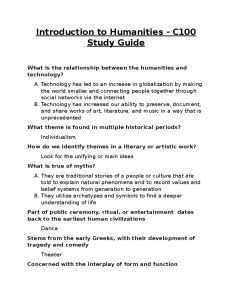Chimamanda Ngozi Adichie, a renowned author celebrated for her powerful storytelling and profound insights, recently graced Harvard Square for the much-anticipated release of her latest novel, “Dream Count.” With more than a decade in the making, this book embodies Adichie’s journey through grief and emotional storytelling, reflecting her commitment to radical honesty in fiction. The narrative unfolds through the lives of four interconnected women, each grappling with love and self-discovery in a world shaped by personal and collective challenges. As she navigates the complexities of life amidst her own struggles, Adichie offers readers invaluable fiction writing advice that resonates deeply. With “Dream Count,” she not only enriches the literary landscape but also invites readers to explore the depths of human experience, revealing how art can comfort in times of sorrow.
In her latest endeavor, Chimamanda Ngozi Adichie explores the intricate themes of love, grief, and self-identity, culminating in the inspiring work titled “Dream Count.” This novel highlights the emotional turmoil faced by individuals as they seek connection amid diverse life experiences. Through compelling narratives, Adichie shares her unique perspective on the intersection between personal hardship and storytelling. Her dedication to authentic, radical honesty serves as a blueprint for aspiring writers, showcasing how vulnerability can transform fiction into a mirror reflecting our shared humanity. As readers delve into the layers of Adichie’s writing, they are compelled to confront their own truths and the complexities of life.
Chimamanda Ngozi Adichie’s Journey with ‘Dream Count’
Chimamanda Ngozi Adichie’s literary journey reached a significant milestone with her latest work, ‘Dream Count,’ a novel that embodies her masterful storytelling infused with emotional depth and radical honesty. For over a decade, Adichie grappled with self-doubt and fear, unsure if she could complete another book after the success of ‘Americanah.’ The emotional turmoil she encountered during the creative process added layers to her narrative, allowing readers to connect with the palpable sense of vulnerability that marks her writing. Featuring a cast of interconnected characters, the novel explores themes of love, self-discovery, and the impact of grief on personal identities, showcasing Adichie’s trademark skill in weaving complex human experiences into her fiction.
As Adichie herself remarked, the act of writing is deeply intertwined with self-exploration—an idea she communicates beautifully in ‘Dream Count.’ The characters, each navigating their respective griefs and aspirations, represent facets of Adichie’s own life experiences and contemplations. This raw portrayal of emotional storytelling not only highlights the narratives within the book but also reflects on universal themes, drawing the reader into a shared space of understanding and introspection. Through her art, Adichie elevates fiction to a platform for discussing radical honesty, prompting her audience to reflect on the stories they tell themselves and the lives they wish to lead.
The Role of Grief in Fiction Writing
Adichie’s ‘Dream Count’ serves as a poignant reminder of how grief can profoundly influence storytelling. The novelist’s personal experience with loss—particularly the passing of her father—immerses the narrative in a deeper emotional landscape that resonates with readers. This exploration of grief not only enriches character development but also prompts an examination of how personal tragedy shapes one’s understanding of love and life’s possibilities. Adichie openly shares how her moments of grief provoked revelations about self-knowledge, weaving these insights into the narrative fabric of her novel. Such authentic reflections elevate her characters’ journeys, making them relatable and profoundly human.
In envisioning grief through the lens of her protagonists, Adichie demonstrates how fiction serves as a powerful tool for processing emotions. By creating spaces where characters confront their heartaches, she invites readers to embrace their own experiences of loss, ultimately fostering a sense of collective healing. This connection between grief and storytelling echoes among interdisciplinary discussions of emotional storytelling, reminding us that through the written word, we can confront difficult truths and find meaning in our shared experiences. Adichie’s approach not only offers fiction writing advice but also encourages a deeper connection between authors and their audiences, stemming from shared vulnerabilities.
Radical Honesty in Writing: A Key to Emotional Depth
Radical honesty, as articulated by Adichie during her discussions surrounding ‘Dream Count,’ is an essential ingredient for creating compelling fiction. She emphasizes that writers must be willing to let go of preconceived notions and allow their true emotions to surface on the page. This concept challenges aspiring authors to share their authentic selves, fostering a narrative integrity that resonates with readers. Adichie’s own commitment to radical honesty in her writing process showcases the transformative power of vulnerability, allowing her to craft narratives that don’t shy away from difficult truths. Her insights serve as crucial fiction writing advice for those seeking to connect deeply with their audiences.
This approach not only applies to the act of writing but also extends to how stories are perceived and interpreted by readers. By engaging with emotionally charged narratives that embody radical honesty, readers are invited to partake in a shared emotional journey, fostering understanding and empathy for diverse experiences. Adichie’s work demonstrates how fiction can be a mirror reflecting our truths, encouraging us to confront our fears and embrace our complexities. As she navigates the intricate layers of identity and grief through her characters, she also reinforces the idea that radical honesty is not merely a stylistic choice but a necessary approach for writers seeking to impact their readers meaningfully.
Crafting Fiction with Emotional Storytelling
Adichie’s method of emotional storytelling in ‘Dream Count’ highlights the interconnected lives of her characters, emphasizing how their journeys reflect broader human experiences. Each character, from the privileged Chiamaka to the resilient Kadiatou, navigates their paths filled with challenges, love, and self-discovery. This deliberate crafting of character arcs allows readers to engage with diverse perspectives and emotional landscapes, reinforcing the notion that storytelling is a communal engagement that transcends individual experiences. Through relatable character development, Adichie encourages readers to reflect on their own lives while immersing themselves in the fictional world she has created.
In ‘Dream Count,’ the emotional depth is anchored in the complexities of human relationships and the underlying grief that often accompanies them. Adichie’s narrative prowess lies in her ability to weave pain and joy into a seamless tapestry of storytelling. The exploration of these emotional currents not only captivates readers but also invites them to engage with the characters’ struggles on a personal level. By combining fiction with profound emotional storytelling, Adichie not only enriches the literary world but also enhances the reader’s journey, creating an intimate bond that lingers long after the last page is turned.
Lessons in Writing and Life from Adichie’s Experience
Chimamanda Ngozi Adichie’s insights on balancing motherhood and writing provide valuable lessons for aspiring authors. Touching on her experiences with writer’s block, she underlines the importance of nurturing creativity, even during challenging times. Adichie suggests that stepping back and finding inspiration through diverse forms of art, such as poetry, can rekindle the spark needed for writing. This perspective serves as crucial fiction writing advice, emphasizing the need for patience and self-compassion in an often demanding creative process. By sharing her experiences, Adichie inspires fellow writers to persevere through their struggles and remain dedicated to their craft.
Furthermore, Adichie exemplifies how personal life experiences shape one’s writing style and content. She highlights that every aspect of her life, including the joys and challenges of motherhood, ripples through her creative work. By openly discussing these intersections, she encourages writers to consider their personal journeys as vital sources of inspiration. This integration of real-life experiences into fiction crafting fosters authenticity, allowing readers to relate more profoundly to the narratives. Ultimately, Adichie’s philosophy reinforces that every emotion and experience is a potential wellspring for storytelling, inviting writers to embrace their truths in a genuine way.
The Impact of COVID-19 on Art and Storytelling
Adichie’s reflections on the pandemic reveal its profound influence on storytelling and artistic expression. The surreal atmosphere created by COVID-19 acted as a catalyst for exploring deeper themes in her writing, encouraging Adichie to confront issues of identity and self-awareness that resonate throughout ‘Dream Count.’ As the world slowed down, many creatives, including Adichie, found themselves re-evaluating their perspectives on life, love, and human connection. This moment of global uncertainty allowed artists to tap into their innermost thoughts, which often translate into compelling narratives driven by emotional authenticity.
The shift in societal dynamics during the pandemic also inspired writers to find new ways to connect with audiences through their work. Adichie’s exploration of grief and alternate life paths in ‘Dream Count’ serves as a reflection of the collective human experience during a time of isolation and introspection. By tackling these themes, she not only contributes to the ongoing dialogue about art and resilience but also highlights how personal and shared experiences can inform fiction writing. Adichie’s ability to adapt her storytelling in response to the complexities of the pandemic exemplifies the dynamic relationship between art and life, reinforcing the power of literature in navigating times of uncertainty.
Exploring Identity Through Fiction in ‘Dream Count’
‘Dream Count’ intricately weaves themes of identity through the diverse experiences of its characters, allowing for a rich exploration of cultural backgrounds and personal histories. Adichie employs her characters as vehicles to delve into themes of belonging, cultural dislocation, and the search for self amidst adversity. By presenting a multi-faceted narrative that highlights various identities, she showcases how the interplay of personal and cultural contexts shapes her characters’ destinies. This approach resonates with readers navigating their own identities, fostering conversations about individuality and connection in a globally interconnected world.
Throughout ‘Dream Count,’ the characters’ journeys reflect the struggles and triumphs inherent in forging one’s identity. Adichie masterfully illustrates that identity is not static but rather a fluid construct influenced by experiences, relationships, and societal expectations. This nuanced portrayal allows readers to see themselves in the characters’ quests for understanding, encouraging a broader dialogue about the complexities of identity formation. By tackling such universal themes through fiction, Adichie not only enriches her narrative but also empowers readers to actively engage with their own identities, making ‘Dream Count’ a thoughtful exploration of what it means to be human.
Adichie’s Fiction Writing Advice for Aspiring Authors
Chimamanda Ngozi Adichie’s approach to writing offers invaluable insights for aspiring authors who seek to craft compelling fiction. Central to her philosophy is the belief in radical honesty—the notion that true storytelling requires revealing one’s authentic self. Adichie emphasizes that successful fiction is born from a place of vulnerability, where writers must confront their fears and hesitations openly. This candid approach encourages budding novelists to embrace their unique voices, allowing them to resonate with readers on a personal level. By embodying radical honesty, authors can create narratives that not only engage but also evoke emotional responses from their audience.
Moreover, Adichie’s fiction writing advice extends to the importance of immersing oneself in diverse literary sources. She advocates for reading broadly—not just within one’s genre—to draw inspiration from various styles, narratives, and cultural experiences. This exploration enriches a writer’s understanding of storytelling techniques, fostering creativity and innovation in their own work. By encouraging writers to cultivate their perspectives through wide-ranging reading and life experiences, Adichie reinforces the idea that storytelling is an ongoing process of discovery, both personally and artistically.
Frequently Asked Questions
What themes are explored in Chimamanda Ngozi Adichie’s novel ‘Dream Count’?
In ‘Dream Count’, Chimamanda Ngozi Adichie explores themes of love, self-discovery, and the impact of grief on personal identity. The novel interweaves the stories of four women facing life’s challenges and reflects on the different paths their lives could take. Adichie emphasizes ‘radical honesty’ in emotional storytelling, offering readers a deep dive into the complexities of human relationships and self-knowledge.
How does Chimamanda Ngozi Adichie’s personal experiences influence her fiction writing?
Chimamanda Ngozi Adichie’s personal experiences significantly inform her fiction writing. The loss of her father in 2020 profoundly affected her, leading to an exploration of grief and self-reflection in ‘Dream Count’. Adichie believes that true emotional storytelling requires vulnerability and ‘radical honesty’, which allows her to create complex characters and narratives that resonate with readers.
What advice does Chimamanda Ngozi Adichie give for writing fiction?
Chimamanda Ngozi Adichie advises aspiring writers to embrace ‘radical honesty’ in their fiction. During her discussions, she emphasizes the importance of letting go and being willing to explore unexpected directions within a story. She encourages writers to integrate personal experiences into their work, suggesting that authentic emotional storytelling can enhance the depth of fiction.
How does ‘Dream Count’ relate to the concept of grief in Chimamanda Ngozi Adichie’s work?
In ‘Dream Count’, grief plays a central role in shaping the narrative and character development. Chimamanda Ngozi Adichie’s own experience of losing her father prompted her to explore the complexities of grief and self-knowledge. The novel illustrates how grief can impact relationships and personal identity, transforming the characters as they navigate their emotional journeys.
What makes Chimamanda Ngozi Adichie’s narrative style unique in ‘Dream Count’?
Chimamanda Ngozi Adichie’s narrative style in ‘Dream Count’ is unique due to her focus on emotional storytelling and character depth. She skillfully interlinks the lives of four women, creating a tapestry of experiences that reflect their struggles and triumphs. Adichie’s use of ‘radical honesty’ allows readers to engage deeply with the characters, making her fiction both relatable and profound.
Can you share insights on how Chimamanda Ngozi Adichie defines ‘radical honesty’ in her writing?
Chimamanda Ngozi Adichie defines ‘radical honesty’ in her writing as a commitment to authenticity and emotional truth. She believes that good fiction must embrace vulnerability and reveal deeper truths about life and relationships. This approach not only enriches character development but also fosters a genuine connection with readers, allowing them to reflect on their own experiences.
What personal challenges did Chimamanda Ngozi Adichie face while writing ‘Dream Count’?
Chimamanda Ngozi Adichie faced personal challenges, including a significant emotional response to her father’s passing, which influenced her writing of ‘Dream Count’. She experienced fears of writer’s block and uncertainty about her ability to complete the novel. However, these challenges ultimately fueled her creativity, as she drew upon her grief and personal reflections to craft the narrative.
How does ‘Dream Count’ reflect Chimamanda Ngozi Adichie’s views on self-knowledge?
In ‘Dream Count’, Chimamanda Ngozi Adichie illustrates her views on self-knowledge through the journeys of her characters. Each woman in the novel confronts her past and her perceptions of herself, highlighting the complexities of identity and the continuous quest for understanding one’s own emotions and desires. Adichie uses her characters’ experiences to emphasize that self-discovery is a lifelong journey intertwined with love and relationships.
| Topic | Details |
|---|---|
| Author | Chimamanda Ngozi Adichie |
| New Book | “Dream Count” |
| Themes | Love, self-discovery, grief, radical honesty |
| Main Characters | Chiamaka, Omelogor, Zikora, Kadiatou |
| Background | Written over 10 years, released after personal grief |
| Narrative Style | Focus on emotional truths and self-knowledge |
| Motherhood | Adichie discusses the balance of motherhood and writing |
| Key Message | Fiction is about letting go and pursuing radical honesty |
Summary
Chimamanda Ngozi Adichie continues to captivate readers with her profound storytelling and exploration of complex themes in her latest work, “Dream Count.” This novel, born from years of personal reflections and emotional truths, showcases her mastery of narrative as she delves into the lives of interwoven characters seeking love and self-discovery amidst grief. Adichie emphasizes the importance of radical honesty in fiction, allowing her audience to connect deeply with the characters’ journeys. Her insights into life, motherhood, and the creative process not only provide a glimpse into her experiences but also resonate with universal truths, solidifying her place as a luminary in modern literature.









